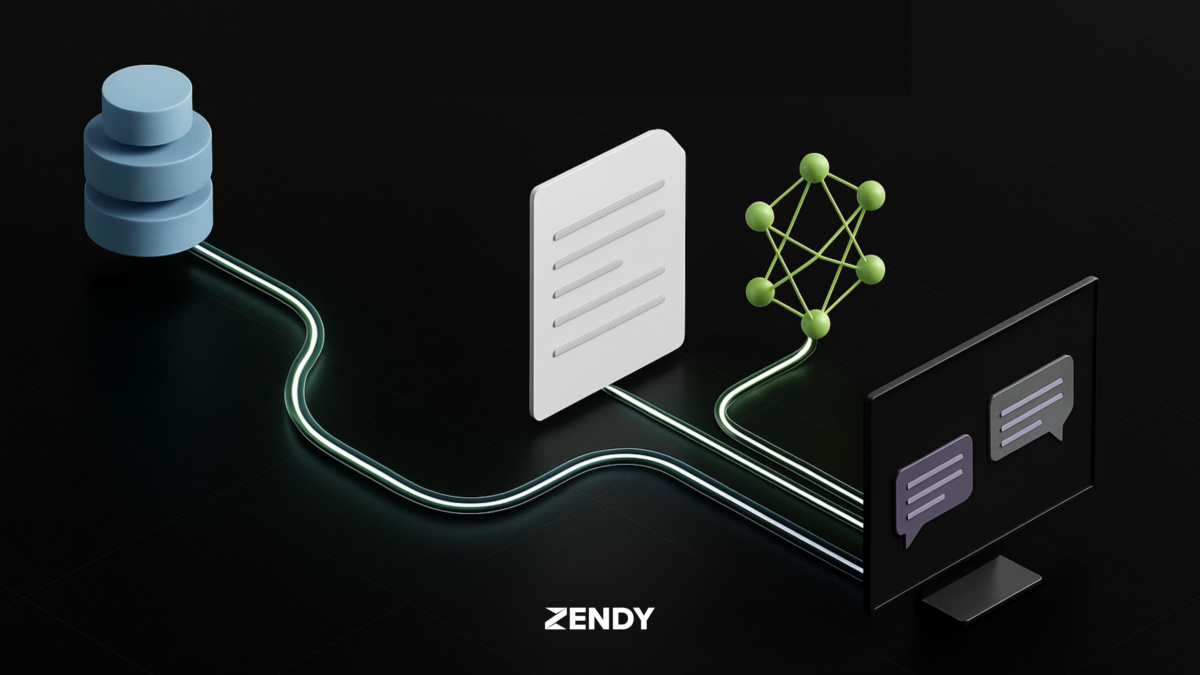
Today, we announced that Wiley and IEEE have joined Zendy’s RAG-based revenue-sharing model, exemplifying a positive move toward ethical AI collaboration within the academic publishing industry.
This news builds on our March announcement of a new Retrieval-Augmented Generation (RAG)-based revenue share model, created to ensure publishers are proportionately compensated when their licensed content is cited or referenced by AI.
Publishers Indicate a Shift Toward Ethical AI Partnerships
The addition of Wiley and IEEE signals growing momentum behind Zendy’s RAG-based model. They join other publishers including IT Governance, Lived Places Publishing, Lexxion, British Online Archives, Bentham Press, and e-Marefa—reflecting a shared commitment to transparency, research integrity, and publisher-supported innovation at a time when such values are critically needed.
Supported by these publishers, Zendy’s AI assistant, ZAIA, can now reference an even broader base of peer-reviewed content, ensuring that researchers receive high-quality, accurate, and fully attributed responses powered by our domain-specific large language model.
Zendy Co-founder Kamran Kardan commented:
“We’re seeing a turning point in how academic publishers view AI, we can sense an active shift from threat to partner. The inclusion of Wiley, IEEE and our other partners sends a powerful message that transparent and fair licensing and ethical AI models are the way forward.”
A Transparent Model Grounded in Attribution and Licensing
ZAIA uses RAG to retrieve data from a combination of open access and licensed paywalled sources. References generated by the model are attributed, enabling Zendy to calculate compensation per citation. This ensures AI can reach its full potential without overlooking the critical questions publishers are asking. We’re building this model together with collaboration at its core.
This model is not just a technical solution, it’s a statement about the future of knowledge dissemination, where publishers are part of the AI value chain, not left behind by it.
We also see a future where attribution goes beyond paywalled content, recognising the pivotal contributions of Open Access publishers and, ultimately, individual authors. Our model is designed to be scalable across the entire scholarly communication ecosystem, ensuring that the benefits of AI reach every stakeholder in the research value chain.
Why Ethical Attribution Matters for Researchers and Institutions
For the global scholarly community, this means unrestricted access to quality, reference-backed information. With trusted sources powering responses, researchers can confidently explore new ideas.
For institutions, it creates a more defined path to AI adoption with publisher-approved, ethically referenced data, supporting academic integrity and compliance at every step.
Get Involved in the Future of AI Collaboration
We invite all stakeholders, including academic publishers, libraries, and research institutions to join us in shaping a future where AI collaboratively supports, not replaces, the foundations of scholarly communication. For more information or to book a demo of the capabilities of Zendy’s AI solutions, please visit our website.
About Zendy
We are an AI-powered research library with over 780,000 users across over 190 countries. Designed to accelerate the research process, we provide access to millions of journals, articles, and e-books, while offering a range of AI-driven tools, including ZAIA, an AI assistant that helps researchers expedite their research journey.
We collaborate with leading academic publishers to make scholarly content more accessible and affordable, ensuring that users can explore high-quality research with ease.
Zendy is a product of Knowledge E and is developed in collaboration with researchers, students, institutions, and publishers. Our mission is to democratise access to content by making it more affordable and accessible. There are no limitations on reading, just simple access to scholarly resources.
For more information, visit zendy.io.
